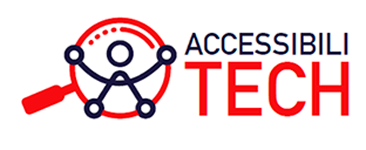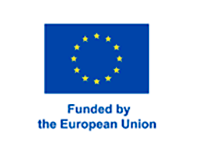@rayofwill
Perfil
Registrado: hace 9 meses, 2 semanas
Elevating Academic Success in Nursing Through Structured Programs and Writing Assistance The NURS FPX program is structured to support aspiring nursing professionals in achieving their academic and career goals through a competency-based learning model. It is designed for learners who thrive on independence, offering flexibility in how and when coursework is completed. This format is especially useful for working nurses and adult learners, providing them with the opportunity to manage their own academic pace. Rather than following rigid schedules, learners demonstrate mastery of specific competencies, which streamlines progress while maintaining rigorous standards. A critical feature of NURS FPX is its assessment-based approach, replacing timed exams with practical assignments that reflect real-world healthcare scenarios. These assignments require students to engage deeply with topics like patient safety, care coordination, and ethical decision-making. By emphasizing critical thinking and problem-solving, NURS FPX better equips students for actual clinical challenges. Students must show not just theoretical understanding, but also how they would apply knowledge in various care settings, improving their readiness for professional roles. What distinguishes NURS FPX further is the individualized support learners receive from academic coaches and mentors. These professionals offer ongoing feedback, guidance, and encouragement, ensuring students do not feel isolated while navigating the self-paced system. This personalized mentorship helps learners stay on track, refine their understanding, and maintain motivation throughout their educational journey. The overall experience fosters independence while still offering access to structured support systems, an ideal balance for motivated nursing students. Completing a NURS FPX degree ultimately enhances both academic and clinical competence. The program cultivates the ability to think strategically, communicate effectively, and lead within the healthcare system. Because students produce substantial written work and practice-based projects, they leave the program with a strong portfolio that reflects their expertise. This approach produces confident graduates who are not only prepared to deliver care but also contribute to innovation, research, and leadership in the nursing profession. To support students in rigorous graduate-level nursing programs, MSN Writing Services offer targeted academic help tailored to the unique needs of nursing learners. These services are especially helpful for students in programs like NURS FPX, where assessments rely heavily on written projects rather than exams. MSN Writing Services help bridge the gap for learners who are clinically experienced but may struggle with academic writing or time constraints. The services provide structure, clarity, and support for assignments that often require scholarly analysis and proper formatting. Nursing students often find it challenging to convert their professional knowledge into academic writing that aligns with graduate standards. MSN Writing Services assist with formulating clear arguments, using credible sources, and organizing ideas logically. Whether the task is developing a research paper, policy proposal, or care improvement plan, these services help students communicate their insights effectively. They also emphasize proper APA formatting, which is essential for nursing coursework but frequently misunderstood by students. Beyond just editing, MSN Writing Services often guide learners through the entire writing process. This includes selecting a suitable topic, outlining key points, reviewing drafts, and ensuring alignment with course objectives. These services ensure that final submissions are both academically sound and practically relevant. The process of working with writing experts also gives students an opportunity to learn and improve their writing skills for future coursework and professional communication. Using MSN Writing Services can significantly enhance academic confidence and reduce the stress that often accompanies graduate programs. Many nursing students juggle full-time work, clinical obligations, and family life, leaving little time for perfecting writing assignments. Reliable academic support allows them to meet tight deadlines without sacrificing quality. In doing so, students maintain academic momentum while focusing on learning outcomes that matter most in their careers. In NURS FPX 4055 Assessment 4, students are asked to critically examine issues surrounding patient safety and propose evidence-based solutions to address them. This assessment calls for in-depth evaluation of real or potential safety hazards within clinical environments. The assignment reinforces the idea that nurses are not just care providers but also guardians of patient well-being. By analyzing actual safety data and clinical reports, students learn to identify trends, gaps, and risks that affect patient outcomes. The process of completing this nurs fpx 4055 assessment 4 involves proposing actionable changes that can enhance safety practices. These might include revising protocols, improving communication among staff, or introducing new technologies. Each recommendation must be grounded in credible evidence and aligned with recognized quality improvement models. Students must demonstrate how their proposed strategies would improve patient safety and reduce the likelihood of adverse events, making the assignment a practical learning tool. Another important element of the assessment is considering how leadership plays a role in promoting a culture of safety. Students examine how nurse leaders influence team behavior, support reporting systems, and foster environments where safety concerns are taken seriously. They are encouraged to reflect on the ethical and professional responsibilities that come with leading safety initiatives. Through this, the assessment cultivates both leadership skills and systems-level thinking. Completing NURS FPX 4055 Assessment 4 gives students a thorough understanding of the strategies required to maintain and improve safety in various care settings. They gain experience in evaluating risk, interpreting safety data, and proposing improvements that align with organizational goals. These skills are essential for any nurse interested in management, quality assurance, or patient advocacy, and serve as a foundation for further professional development. NURS FPX 4065 Assessment 3 challenges students to focus on health promotion strategies that are both practical and community-specific. It involves identifying a health issue prevalent in a particular population and creating a detailed plan to address it through preventive care. This type of assessment emphasizes the importance of proactive, rather than reactive, healthcare. Students are expected to explore the social, environmental, and behavioral factors that contribute to health disparities within a community. The nurs fpx 4065 assessment 3 requires students to gather and analyze data, whether from public health reports, community assessments, or interviews with key stakeholders. The aim is to understand the root causes of the identified health issue and craft a solution that reflects the needs and values of the community. This teaches students how to approach public health with cultural sensitivity and strategic planning. They are also encouraged to work within existing community resources and propose partnerships that can aid implementation. Crucial to this assessment is demonstrating how nursing professionals can act as leaders in community wellness efforts. This includes collaborating with schools, local organizations, and healthcare providers to deliver educational programs or preventive services. Students must consider barriers such as transportation, language, or mistrust of the healthcare system and propose ways to overcome these challenges. By doing so, they learn to view healthcare as a community endeavor that extends beyond hospital walls. Successfully completing NURS FPX 4065 Assessment 3 empowers students to think broadly about their roles as nurses. They develop the ability to assess needs, engage stakeholders, and lead initiatives that promote better outcomes across populations. This experience lays the groundwork for future involvement in public health campaigns, policy work, or interdisciplinary projects focused on long-term wellness and prevention. As students enter the final stages of their MSN journey, NURS FPX 4905 Assessment 1 serves as the starting point for their capstone experience. This assignment marks the beginning of a comprehensive project that reflects the knowledge and skills accumulated throughout the program. In this first assessment, learners identify a significant clinical or organizational problem and outline a preliminary plan to address it. It is a highly strategic task, requiring thoughtful problem selection and clear justification for its relevance to nursing practice. The nurs fpx 4905 assessment 1 process involves an in-depth exploration of the chosen issue, supported by recent literature and stakeholder perspectives. Students are expected to demonstrate why this problem matters, who is affected, and what outcomes are currently lacking. This level of analysis helps them understand the complexities of healthcare systems and prepares them to take initiative as change-makers. The early stages of the capstone also include mapping out the project’s scope, feasibility, and expected impact. Planning is a vital part of this assessment. Students must begin drafting goals, interventions, and evaluation methods that will guide the rest of the capstone. Considerations like budgeting, time management, and team coordination come into play, reinforcing the real-world applicability of the project. The ability to balance vision with practicality becomes essential, as the final project must be both innovative and implementable within a healthcare context. NURS FPX 4905 Assessment 1 symbolizes a significant shift from learning to doing. It requires students to take all the theories, skills, and leadership strategies they’ve acquired and begin applying them in a meaningful, structured way. The result is a powerful demonstration of readiness for advanced nursing roles, whether in clinical leadership, education, or policy. It is the first step toward making a measurable impact in the healthcare field, marking the transition from student to professional.
Foros
Debates iniciados: 0
Respuestas creadas: 0
Perfil del foro: Participante

